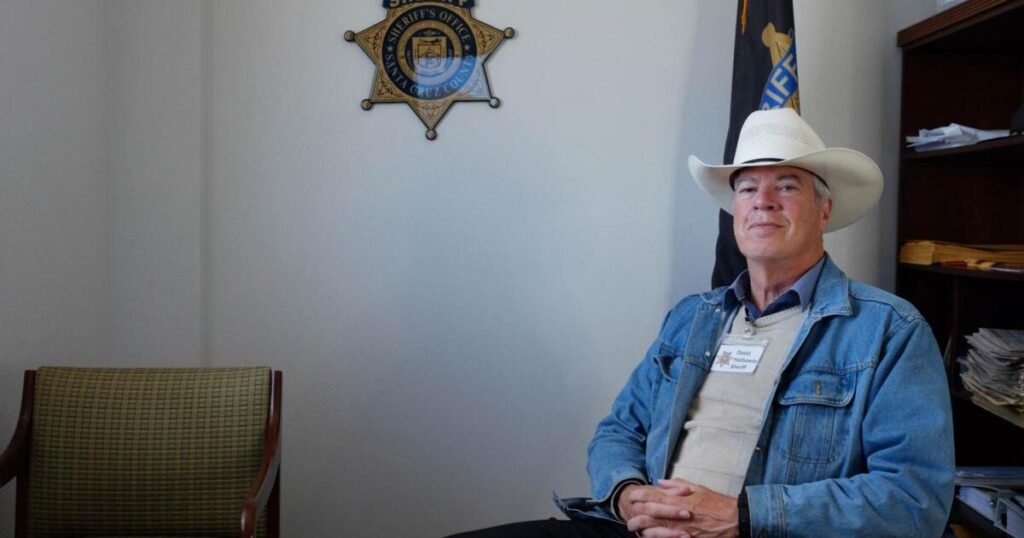Lawmakers and local officials were in Nogales Monday morning, arguing that Congress is fueling the crisis by failing to pass border and immigration reform.
The reform in question Omnibus Funding BillThe bill, drafted by a bipartisan group of lawmakers earlier this year, includes funding for additional Border Patrol and asylum officers, as well as a major overhaul of the asylum system and work permit process.
Santa Cruz County Sheriff David Hathaway told reporters he wants reforms such as more immigration judges and court resources.
“Immigration judges, paralegals, judges' clerks — those were in the bill,” he said.
But the bill has so far failed to pass. Rep. Ruben Gallego, who appeared with Hathaway, Attorney General Chris Mays and other Nogales local officials, said the bill also includes funding for increased drug detection at ports of entry, but that there is currently a lack of funding to make the equipment operational.
“Currently, according to Acting CBP Commissioner Troy Miller, scanners designed to detect fentanyl being smuggled across the border are sitting in a warehouse here in Nogales, not being used,” he said.
Homeland Security Announced The stepped-up interdiction efforts in Nogales began almost a year ago today. Earlier this month, Acting Customs and Border Protection Commissioner Troy Miller said: Said NBC needed about $300 million in funding to install the machines.
Gallego said that as Congress approaches a budget deadline in the coming weeks, lawmakers should prioritize border states and ensure funding for emergency responders, local police and advocacy groups that help immigrants and asylum seekers. Pima County officials have also warned that their program to help asylum seekers legally enter the U.S. for their cases will have to halt this month without more federal funding.
Mays said her office is already prosecuting drug smugglers, but without border inspections, drugs still continue to flow in.
“My guess is that at this very moment millions of pills are coming across the border because these scanners aren't in place and it's because politicians in Washington are arguing with each other,” she said.
More than 13,000 pounds of fentanyl were seized along the Arizona border between October 2022 and September of last year. According to CBP dataAnalysts using federal data say the majority of fentanyl smuggling occurs at ports of entry. Often, it is done by U.S. citizens.







